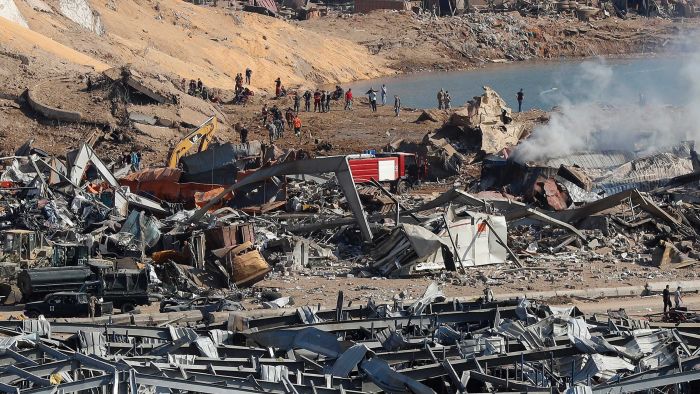The massive blast that hit Lebanon’s capital on Tuesday has delivered yet another devastating blow to a country already rocked by crises.
Well before the explosion, and even the coronavirus pandemic which upended the world, Lebanon was in the midst of the worst economic crisis in its history.
Half its population of 6 million lives near or below the poverty line and hundreds of thousands of people have lost their jobs.
The nation’s currency has more than halved during the crisis, with people’s savings locked up in inaccessible bank accounts.
And the pandemic has only further laid bare the strain the whole system is under.

There have been fuel shortages, blackouts, soaring prices and hunger. Hospitals have been overwhelmed.
And now there has been an explosion in the capital.
“I haven’t seen massive destruction in my life on this scale. This is a disaster, a catastrophe, nothing but a national catastrophe.
“We don’t know how we’re going to deal with this situation at a time when we can’t even walk outside our homes.”
What was happening in Lebanon?
The heavily indebted country has been sliding deeper into trouble since October last year.
Slowing capital inflows at the time only added to the country’s worsening economic situation, sparking what was dubbed the October revolution as protesters hit the streets in droves.

The demonstrations resembled the 2011 Arab revolts that toppled four presidents. Protesters demanded an end to corruption, accusing leaders of using their positions to enrich themselves for decades through favourable deals and kickbacks.
By January, Lebanese politicians had still failed to agree on a governm

